Episode 55: Mental Toughness with Emily Tilden
Photo by Mei Ratz. www.meiratzblog.com
Here in Lander there is a very strong contingent of powerful women. I'm lucky to have become friends with many of them, and I'm extremely fortunate to be able to count Emily Tilden among those friends. She is a no-bullshit straight-shooter, which I value and appreciate, and like many great athletes, she has a mental tenacity that is sometimes difficult to comprehend. I've watched her handily win the pullup comp at the International Climbers' Festival several times, and I've watched her cruise to an easy win, with a smile on her face, after running 20K at over 9,000 feet of elevation.
Emily likes to run long distances. In the mountains. Likes to. What? That just doesn't compute with me. She's a mom that was right back to the gym, with son Wyatt in tow, shortly after giving birth. She also has the often rare ability to vocalize why and how she is able to push through the wall that stops me at about mile #1.
Perhaps even more interesting is that when climbing, she doesn't have the same drive. It occupies a different space for her. Why is that? Why can I go "a muerte" on a climb, but want to call for a ride home after running a few blocks? What's the difference?
We may actually have a few answers.
Emily after a nice ultra run. Nice?
Emily is a trainer here in Lander at Elemental Performance and Fitness. She's an NSCA-CPT, and if you're interested in working with her, you can reach her at: emily@elementalgym.com
I promise, she won't bullshit you.
Tell your friends. We don't tweet. We scream like eagles.
Photo by Mei Ratz. www.meiratzblog.com
Books we mention in this episode:
**Buying these books through these links doesn't change the price for you, but gives us a small kickback that helps to support what we're building here.**
Like what you hear? Subscribe to The Power Company Podcast on ITunes, Google Play, or Stitcher Radio, and leave a rating and review!
FULL EPISODE TRANSCRIPT:
Meagan Martin 00:00
This is Meagan Martin and you're listening to The Power Company Podcast.
Kris Hampton 00:35
What's up everybody? I'm your host, Kris Hampton. Welcome to Episode 55 of The Power Company Podcast brought to you by powercompanyclimbing.com. Things have been exceptionally busy over here at Power Company headquarters lately. Our new Process Journal is out into the world. And by out in the world, I mean, I've shipped it to four or five countries already and pretty much all over the US and we're almost sold out of the first batch, so I've already ordered batch number two. So if you want to learn more about those Process Journals, head on over to the website, powercompanyclimbing.com. You can find those in the shop on the website and learn a little more about them. And we're working on international shipping. All the ones we've done so far have just been people messaging me with, you know, I need this thing in my hands, get it to me. And I've done that. So if you're interested in international shipping, and you don't see it on there yet, go ahead and shoot me a message. I'd be happy to figure it out for you. One more bit of news for you guys. We are headed out on tour. I've actually left Lander at this point as of today, and we'll be hitting up several gyms in Missouri. So if you guys happen to be in the Missouri area, we are coming to you and we would love it if you would come out and see us. We'll be at ROKC Kansas City on August 13 and 14th. We'll be at Climb So iLL on August 16, at Zenith Climbing Center August 18, and 19th and then back at ROKC on August 20 and 21st. And then we're going to be in Boise, Idaho at Asana, August, 25 26th, and 27th. So if you're in any of those areas, go see your gym, find out when we're going to be there, sign up. Most of those sessions have a limited number of people that are allowed to be in it, just so we can give you guys enough attention. So definitely go sign up sooner rather than later and we'll see you guys soon. So and if we're not coming to your city, hit us up. We'd love to know where you guys want us to be. So reach out and let us know. Today's episode is with a good friend of mine, Emily Tilden. Emily is actually the reason I came to Lander to begin with. She reached out to me via MySpace and she had... her message said, "I'm only creating this MySpace profile so that I can message you." It was at the time when I had written the song "Float" and Lander was interested in having me out for the Climbers Festival to perform the song with Misty Murphy, my co writer on the song. And so it was Emily's doing that that got me out to Lander to begin with. And I fell in love with the place and I fell in love with a girl and I, you know, now I live there and we're buying a house as I speak. So thanks to Emily for that. And Emily is a badass. Honestly, she might be the most badass in her household. Her husband is BJ Tilden, who many of you know. And he's a great sport climber and a great boulderer, one of the strongest climbers in America for sure. But the things that Emily does might be more badass. She's an endurance athlete, skier, runner, you'll hear a lot about that on this podcast and she's also a mama. BJ and Emily recently had baby Wyatt and they're pretty much crushing the parenting game and right back into training, right back into climbing hard. So it can be done and I think looking at these people who do it well is a good way to figure out how to do it on your own. And Emily, because of this mental toughness that she has that can, you know she runs these 100 mile races in the mountains, which I can't even grasp. I don't even understand it but I wanted to know why that works, how that works. I try to go running. I just want to stop and have somebody come and pick me up. I don't even want to run home and but for Emily when she goes out climbing it's a similar thing. She isn't interested in trying really hard, you know, so we talked about that. How how can you try really hard, go a muerte, in one thing and not in the other? What's the difference? Why does it work in one place and not the other and can you switch that? So I'm not, I'm gonna stop rambling now and I'm gonna let Emily talk.
Emily Tilden 05:19
I guess sort of having some trust in the capabilities of my body and that I've put the time and practice in, make me feel comfortable going out and doing those things.
Emily Tilden 05:49
Sometimes when you hear your recordings of yourself, you're like, "Really? That's what I sound like? That's crazy. I never knew it."
Kris Hampton 05:56
Yeah, that's what everybody says, but I think once you hear your voice recorded for long enough,
Emily Tilden 06:01
It's normal.
Kris Hampton 06:01
It just sounds the exact same.
Emily Tilden 06:03
Sure.
Kris Hampton 06:03
Yeah, mine sounds totally the same. And in fact, since I make it sexier in all my post production,
Emily Tilden 06:12
Even better
Kris Hampton 06:13
Then it's even better, yeah.
Emily Tilden 06:14
Excellent.
Kris Hampton 06:14
I like to listen to myself.
Emily Tilden 06:16
Perfect. You picked the right career choice then right?
Kris Hampton 06:19
Yeah, no doubt. So, first, let me let me get a little bit of background on you because we're going to we're going to talk about mental tenacity, toughness, grit, perseverance, whatever you want to call it. I think everyone has a different word for it, and maybe a different definition of it.
Emily Tilden 06:40
Sure.
Kris Hampton 06:41
But you, in my opinion, sort of exude this mental tenacity, and in several ways, and I think we'll get into that, but give me a little bit of background on your athletic life.
Emily Tilden 07:00
Well, I was really fortunate. I grew up in Lake Tahoe, California, which is sort of an outdoor recreation mecca.
Kris Hampton 07:08
Yeah. Beautiful.
Emily Tilden 07:10
Yeah. Gorgeous area. And so, you know, we would just spend our childhood outside, building forts and helping my dad build things and being active, and so
Kris Hampton 07:24
Do you have siblings?
Emily Tilden 07:24
I have two younger sisters. Anyhow, so then, I don't know, I played soccer when I was really little, got into cross country skiing in like fourth and fifth grade, and then competed on my middle school ski teams and then my high school ski teams. Played soccer all through high school, ran track, and got into rock climbing just a little bit in high school. And then knew that I really liked cross country skiing and so chose to go to Montana State, up in Bozeman.
Kris Hampton 08:00
I wondered how you ended up in Montana.
Emily Tilden 08:02
It had mountains.
Kris Hampton 08:03
Yeah,
Emily Tilden 08:04
Seemed like a cool town haha. And then walked on to the college NCAA Division One team there
Kris Hampton 08:15
For skiing?
Emily Tilden 08:16
For skiing.
Kris Hampton 08:16
For cross country?
Emily Tilden 08:17
Yeah cross country skiing. And so competed, well redshirted a semester, and then competed 4 years there. And then followed BJ to Lander. What was I thinking?
Kris Hampton 08:28
Haha and you're still regretting it.
Emily Tilden 08:29
Haha and we're still here. Terrible choice. And then started coaching skiing at the high school here as a way to still stay connected to the sport. And realized that training for skiing while coaching for skiing was increasingly challenging.
Kris Hampton 08:47
Yeah. I imagine.
Emily Tilden 08:47
And so then shifted gears into running.
Kris Hampton 08:51
So that's where running comes in. I was curious
Emily Tilden 08:54
And came...just went all in haha
Kris Hampton 08:58
Yeah.
Emily Tilden 08:58
On running,
Kris Hampton 08:59
Obviously. So let's talk about... I don't know anything about cross country skiing. So tell me a little bit about like, race length, like what's that look like? I have no idea.
Emily Tilden 09:12
Most Nordic ski races are anywhere from 5k to 50k.
Kris Hampton 09:15
50k? That sounds crazy.
Emily Tilden 09:17
So that's like 3 miles to 30 some miles. And so skiing is unique in that the conditions are always different.
Kris Hampton 09:30
Right. right.
Emily Tilden 09:30
So you could have really fast snow conditions and it could feel like an easier race.
Kris Hampton 09:35
Sure.
Emily Tilden 09:35
Or it could be snowing,
Kris Hampton 09:38
Just horrendous
Emily Tilden 09:39
An inch an hour and you're just slopping through whatever happens.
Kris Hampton 09:44
Yeah. Do you find that same thing in the mountains, running? Or is it generally mostly good?
Emily Tilden 09:54
I think running in the mountains is even maybe a little bit easier in some ways.
Kris Hampton 09:57
Okay.
Emily Tilden 10:00
Maybe the weather patterns can be challenging that way. But I think in all of these sports, the strategy is still that, like, keeping moving is your safety net.
Kris Hampton 10:11
Right.
Emily Tilden 10:12
Like, rarely do you think," Oh, I'm definitely spending the night out there." You're like, "Hell no, I'm getting home. I'm gonna keep running." I'm going to keep moving in whatever capacity I need to because that's the safer option, rather than trying to bivy or
Kris Hampton 10:28
So how many of these long, like 50k, cross country ski races have you done?
Emily Tilden 10:35
Ummm
Kris Hampton 10:36
See, I don't even know this part of your background. I'm fascinated by the running and I know nothing about the skiing.
Emily Tilden 10:41
So you know, usually after like, when I was in college, I would do some, like postseason, they call them marathon distance ski races. So anything that's 30k to 50k or longer are sort of this marathon category of skiing.
Kris Hampton 10:58
And you're just doing those for fun or...?
Emily Tilden 11:00
Yes. Don't laugh when I say that. Yeah, I mean, I think a lot of races, it's partly you get to see a new place, you travel somewhere different. As in all sports, I think the camaraderie of it keeps you invested and keeps you kind of coming back for more.
Kris Hampton 11:17
Totally.
Emily Tilden 11:18
And then of course, the like, "Well, can I do it?" is a big motivator.
Kris Hampton 11:23
Yeah. So you've done
Emily Tilden 11:25
So so maybe 10.
Kris Hampton 11:27
Okay, and then runs....so let me just preface this by saying that the first time I think I ever saw you run or saw saw you during a run was my first time here in Lander with the, I don't even know what they call it up there at Wild Iris, the.....
Emily Tilden 11:49
It was the Wild Iris Mountain Run and now it's the Dolomite Dash.
Kris Hampton 11:53
Okay, right.
Emily Tilden 11:54
With the breakfast?
Kris Hampton 11:55
Yeah. And I remember that day, just jogging from like where they had the pancake breakfast up to the bathroom, which is what, like 100 yards?
Emily Tilden 12:05
Haha right.
Kris Hampton 12:06
And I almost died.
Emily Tilden 12:08
At 9000 feet.
Kris Hampton 12:09
Yeah,
Emily Tilden 12:09
You're like, "Whoa!"
Kris Hampton 12:10
Yeah, it felt horrendous. And then you come cruising in at the end of the race, winning, and looked totally fine. You looked better than I did just jogging to the bathroom.
Kris Hampton 12:21
Haha well thank you.
Kris Hampton 12:22
So I was fascinated by how this even happens. And you've run much longer races than that one. That one was a 5k or was it longer?
Emily Tilden 12:32
It was a 21k, so about a half marathon length.
Kris Hampton 12:34
Oh god. This sounds crazy to me. Okay, so longer races, you've done a few.
Emily Tilden 12:40
Yes.
Kris Hampton 12:41
Way up in the mountains. Talk to me a little bit about those and what they are.
Emily Tilden 12:44
Um, trail running and ultra running, I would say are
Kris Hampton 12:50
I think trail running is a bit of a misnomer here.
Emily Tilden 12:52
That's possible.
Kris Hampton 12:53
I was reading about it on the internet a little bit and they kept calling them trail runs. And I'm like, No, they're not.
Emily Tilden 12:59
Haha right.
Kris Hampton 12:59
Trail runs are at sea level on a flat, well-maintained trail.
Emily Tilden 13:03
Haha Sure. Maybe it's just what you're used to. I mean, ultimately, it's still about who can do it the fastest.
Kris Hampton 13:12
Sure.
Emily Tilden 13:14
But I like that there's an adventure component. And I think that there is, there's some inherent wisdom in the sport in that you have to make sure that you take care of yourself first, right? If you're injured 15 miles into the mountains, you better have Micah Rush with you so that he can carry you out.
Kris Hampton 13:33
That's a good dude to have with you, in almost all cases.
Emily Tilden 13:36
Almost all cases. Or you just know that it's all on you. You sprain an ankle, you run out of food, whatever your situation is, it's still you that has to get you back. Someone's not going to come and get you, come and save you. So I think, inherently, knowing that, you go into it more conservatively. You have to really check in with how your body works and what your strengths are, what your weaknesses are. So I think there's a lot of self analysis that goes with with just those types of events and whether it's a structured event or what we just call like an unsupported run in the mountains.
Kris Hampton 14:15
The...and an "unsupported run" is just you out there doing it to do it?
Emily Tilden 14:17
Like you and your backpack and maybe some water filtration.
Kris Hampton 14:21
Yeah, okay.
Emily Tilden 14:22
Versus a race where you have aid stations every five to 10 rice and there's supplies available to you.
Kris Hampton 14:29
So all this talk about running in the mountains is making me really anxious and it's because, I mean... exactly what we're here to talk about.... this this idea of grit or mental tenacity or toughness. And you don't just, and correct me if I'm wrong, but you don't just get up and go, "Okay, I'm gonna go run a 20k in the mountains" having never done anything similar, right?
Emily Tilden 14:57
Correct. Yep.
Kris Hampton 14:59
So where do we get that? Where do you get that mental toughness from? Is it something that's trained? Is it practiced? What is it?
Emily Tilden 15:08
I think it's all of those things, for sure. I think one of it is like comfort in your environment. So growing up playing outside in the woods, going on backpacking trips, you know, from the age of seven
Kris Hampton 15:22
Yep.
Emily Tilden 15:22
Being out by yourself on cross country ski trails. I feel comfortable outside and so I don't have anxiety around just the space that I'm taking up. And then I also think that there's a lot to be said, for knowing that I'm strong and capable, and that I've put the time and practice in, and not specifically to running in the mountains necessarily, but that I take care of my body and I've weightlifted for a long time, and I have a really good endurance base.
Kris Hampton 15:53
Right.
Emily Tilden 15:54
So I guess sort of having some trust in the capabilities of my body make me feel comfortable going out doing those things. Reading a map is a really good skill, knowing where you're going. And then I think the other part about when you say, "Oh, I'm a trail runner", people are like, "Wow, that's so tough." I'm like, actually, there's a lot of hiking going on. Like, your worst case scenario is that you walk.
Kris Hampton 16:23
Right.
Emily Tilden 16:23
And so there's plenty of walking.
Kris Hampton 16:24
I don't think that's the worst case scenario haha.
Emily Tilden 16:26
Haha well, no, but in our like, sports mind ego.
Kris Hampton 16:31
Right right.
Emily Tilden 16:31
I'm like, "Oh, I can walk up the hill, it's okay."
Kris Hampton 16:34
For sure.
Emily Tilden 16:34
It'll be fine. I can let my heart rate come back down. I can refuel a little bit, I can drink some water and I'm still making momentum forward.
Kris Hampton 16:42
Yeah. And that's important. You know, I think, you know, what you're talking about is just building up these small successes along the way.
Emily Tilden 16:51
Absolutely.
Kris Hampton 16:52
And are there ever moments when you're running that you reflect back on specific successes or for you does it just all build up into one big thing?
Emily Tilden 17:04
Um, I think it's sort of that training age piece where I have this lifetime of sports under my belt.
Kris Hampton 17:11
Right.
Emily Tilden 17:11
And then I think also, I've done some really hard things that I was uncertain of the outcomes, and I was okay. I made it through those hard things. And so, um, so I think that starts to build some confidence there as well. You're like, well, it isn't as bad as mile 75 of the Barrel 100 haha or right like
Emily Tilden 17:33
And I think when you get in those moments, and you've listened to what, what am I telling myself? Am I getting really down on myself? Am I like,"What am I doing out here? This is bad. I don't feel good about this situation"? Letting that be a trigger to sort of reset and reframe your expectations around "I can just walk. It doesn't matter how slowly I go. As long as I'm still headed in that direction, that's okay."
Kris Hampton 17:35
Right.
Kris Hampton 18:03
Yeah, I think I think for me, that's been an important part of learning to be mentally strong. You know, when I first started getting on, say, big routes in the Madness Cave and the Madness Cave was super intimidating and scary, I could very easily reflect back to "Okay, I'm at this point. I'm this pumped. But in the gym on the yellow route..... "
Kris Hampton 18:30
As stupid as that sounds. "I've been way more pumped and done way harder moves afterward. I'm totally fine, so I can do this.", you know.
Emily Tilden 18:30
Yeah
Emily Tilden 18:39
Yep. I think the trick is that you have to remind yourself that you've had success, and that you can have success again, even when things feel really challenging.
Kris Hampton 18:49
Yeah.
Emily Tilden 18:50
And so I mean, in the gym, I see it a lot where people get down on themselves really quickly. I'm like, well, you can look at that as a failure but you can also look at it as a success. And the success might look really, really small in comparison, but it's just as valid. And if you can keep focusing on the small successes, again, it builds momentum into something that turns out to be maybe a bigger deal.
Kris Hampton 19:18
Yeah. Have you ever read or heard of the book called "The Rise"?
Emily Tilden 19:22
I haven't.
Kris Hampton 19:22
It's a.... Sarah Lewis. And she talks a lot about what she calls the gift of a near win. Where ultimately, you could see it as a failure and on face value, it's a failure.
Emily Tilden 19:37
Yep.
Kris Hampton 19:37
But there's tiny little successes in that failure that she's calling a near win, which I think is really important.
Emily Tilden 19:45
Yep.
Kris Hampton 19:46
You know, do you do you have any specific near wins that you...?
Emily Tilden 19:51
There is, yeah. There's a, so just outside of Park City is Soldier Hollow, which is the site of the Olympic crosscountry skiing when they were in Utah. And so in college, and they host lots of more regional types of races, so definitely some big competition there. But there was a race maybe in my junior year in college. There were these two gals from New Mexico Ski Team that just dominated. I was like, "Oh, like, why are they so fast? What's the deal?"
Kris Hampton 20:23
Right.
Emily Tilden 20:24
And it was a mass start, so all the skiers are lined up together and it's like, ready, set, go. Everyone goes together.
Kris Hampton 20:31
Which is chaos.
Emily Tilden 20:31
Which is chaos, because there are skis and poles and people and the trail gets narrower and all these things. Anyhow, I find myself in third place, behind these two girls from New Mexico. Yeah. And I'm like, "Whoa, here we go. What am I doing here? I don't belong here."
Kris Hampton 20:50
Right.
Emily Tilden 20:50
But I said, "Screw it. I'm gonna ski with them as long as I can." And so maybe I skied with them for the first lap and then I, you know, trailed off, but still ended up maybe in the top five. Nonetheless, I proved to myself that I was capable of skiing with them and then it wasn't actually that hard.
Kris Hampton 21:09
Right.
Emily Tilden 21:09
And while I wasn't prepared to ski the entire race with them, I was totally sort of out of my league, I thought. But it was really sort of that gateway drug into one, training harder that summer, and then coming into my senior year feeling like, "This is where I belong. This is where I should be racing."
Kris Hampton 21:28
Yeah.
Emily Tilden 21:29
And not being intimidated by sort of the untouchables that I didn't think I was capable of sticking with.
Kris Hampton 21:38
With those girls, you know, or was somebody like, you mentioned, Micah Rush, you know, having having those people around, or that competition in front of you, I think, is a really important part of building this component of competition.
Emily Tilden 21:55
Yeah.
Kris Hampton 21:55
Even if it's just competition with yourself. It doesn't have to be, you know, an actual competition. But I think that's a really important part of it to see how those people structure their own races, or their own redpoints or whatever.
Emily Tilden 22:12
Yeah, absolutely.
Kris Hampton 22:13
And see, see the struggle that they go through. And the closer that you get, the better you're able to see that struggle.
Emily Tilden 22:20
Yep. And the more you can relate to it, and so then, yeah, the more quickly you're able to internalize it, and then it sort of just becomes part of your normal routine.
Kris Hampton 22:29
Right. Yeah. Like I think, you know, the, the media is such a, it's a great thing and it's a horrible thing, because we get inspired by it but then we see, the parts we see are the the wins.
Emily Tilden 22:44
Right.
Kris Hampton 22:44
You know, so someone sees Chris Sharma and Jumbo Love. They don't look at the six or seven years of work he put into it, constantly.
Emily Tilden 22:57
Absolutely.
Kris Hampton 22:57
And the times that it kept him up at night and all the sacrifices he made to go make it happen, you know. So we tend to want this like immediate satisfaction from everything we do and, and that's why I think it's important to dig in a little bit with the, the people you look up to or admire or competing against, because then you'll see the the truth.
Emily Tilden 23:22
Yeah, absolutely. I think there's also well, so BJ and I, I have a unique situation, because I live with BJ Tilden, who is a really accomplished climber. And so he comes home and he says, "God, I struggled on this thing. It was terrible. But I did really well on my last pitch of the day, because I got back on the 13d for my fitness pitch." or whatever.
Kris Hampton 23:48
Right.
Emily Tilden 23:48
I'm like, "Oh, really? You're amazing. I could never climb 13d." But then also, you know, we sort of laugh about how silly of a sport climbing is. He's like, "Really, it's just a stupid boulder problem. Why do I care about this so much?"
Kris Hampton 24:03
Right. Yep.
Emily Tilden 24:03
Like, well, maybe it has more to do with that we're intrigued by doing the thing that's really challenging for us. And so sort of in our relationship, and in our household, we sort of joke, we're like, "Well, you wouldn't want to do it, if it wasn't hard." If there wasn't a struggle that came with it, you wouldn't be interested in it.
Kris Hampton 24:22
Sure.
Emily Tilden 24:23
And so I think also framing your internal dialogue around "I like to do hard things" and identifying with that and choosing that and embracing the challenge, also gives you that mental tenacity or...right because then you're leaning into the challenge instead of leaning away from it.
Kris Hampton 24:42
Right. Exactly.
Emily Tilden 24:43
And recognizing that it gives you passion and, to be dramatic, a reason to live and you know, the things that just keep you fired up and waking up in the morning.
Kris Hampton 24:54
Yeah, totally. And you know, that that leads me right into, in sort of in preparing for this conversation, I decided, I'm going to go running a few times, and I'm going to run up some hills and, and it sucked. The first time I ran, I got to the top of the first hill and was like, I quit. Like, I'm gonna call somebody to come and pick me up and bring me home, because this is terrible. And, and the fact is, I didn't really care about it that first time, like I was just doing it. I was going through the motions. The second time I'm like, okay, now I have a base level. This is where I was the last time. Can I go a little bit further before I want to double over?
Emily Tilden 25:46
Sure.
Kris Hampton 25:48
And I went way further. And then the third time, I made the whole run without stopping and I felt pretty good afterward.
Emily Tilden 25:54
Yep.
Kris Hampton 25:55
And the whole time I'm going, you know, I'm comparing it. This is how I felt last time right here. I feel a little better. You know, or even this time, I don't feel quite as good right here, I don't think. Let's see how I feel in you know, a 1/4 mile or wherever. And I say a 1/4 mile because I'm not running 20 fucking miles.
Emily Tilden 26:16
Right. You're like we don't count 1/4 miles
Kris Hampton 26:17
No way. I'm going like a mile and a half. And almost dying. But so I think it it has to be, you have to care about it.
Emily Tilden 26:28
Yeah, absolutely.
Kris Hampton 26:29
You know, it can't just be that we and that can just be the challenge. You care about the challenge. BJ cares about the challenge. But he also loves rock climbing, you know, and you love running and skiing.
Emily Tilden 26:43
Yep.
Kris Hampton 26:44
And BJ and I have joked about this pretty often, that we are okay going 100% on a route or on a boulder.
Emily Tilden 26:54
Sure.
Kris Hampton 26:55
And, but if we had to run, unless there's a bear chasing us, we're probably going to stop. You, on the other hand, don't necessarily care a ton about rock climbing.
Emily Tilden 27:10
Right.
Kris Hampton 27:11
So you'll just, you know, you're out there to have fun and enjoy yourself and so why go super hard and wreck your skin and all of this.
Emily Tilden 27:20
Sure, right.
Kris Hampton 27:20
But when you're running, you'll go. So I think it's interesting that it, it can transition over to other things, right?
Emily Tilden 27:29
I think so, for sure.
Kris Hampton 27:31
But it has to be something you care about.
Emily Tilden 27:32
Yeah. And I think that's tricky. Because why do I care about running? I don't really know.
Kris Hampton 27:38
Yeah.
Emily Tilden 27:39
And why is it rock climbing resonates so deeply with BJ?
Kris Hampton 27:43
Do we need to know?
Emily Tilden 27:44
I don't know. He might not know.
Kris Hampton 27:47
Yeah I don't think he does.
Emily Tilden 27:47
But for whatever reason it does, and so I think you just sort of have to embrace whatever thing really resonates with you. And maybe it's how you relate to your body moving in certain ways. I think there's... the rhythm of running for me has almost, for lack of a better term, that walking meditation component. You know, of course, I have some really great friends and running partners that make it social and so it's interesting in that way also.
Kris Hampton 28:24
Yeah. When you say walking meditation, you're just talking about, you know, everything else dropping away while you're doing it?
Emily Tilden 28:33
Yeah. And that it's a place that I can sort of process in the background, but still be present with where I'm putting each foot, how my breathing is, what my surroundings look like, what noises are happening around me? So I think there's some sort of heightened sense of connection with the place because I'm moving in a way that I feel really comfortable moving in my body.
Kris Hampton 28:56
Yeah. And that does not happen for you rock climbing?
Emily Tilden 28:59
Rarely.
Kris Hampton 29:00
Okay.
Emily Tilden 29:01
I wouldn't say that it never has. And I think it's with practice and some, some caring, I'm sure that it could get there.
Kris Hampton 29:09
Yep. Yep.
Emily Tilden 29:09
But I haven't put the time into it to sort of connect with it in that way. Whereas, whether it's just the scope of my lifetime of athletics, running has been an easier thing for me to access that way.
Kris Hampton 29:22
Right. Right. And yeah, I mean, what you're describing is what happens for me rock climbing.
Emily Tilden 29:26
Yeah.
Kris Hampton 29:26
And, you know, when I leave the ground, everything else drops away. I don't hear people's voices, unless I want to.
Emily Tilden 29:34
Yeah, tune in
Kris Hampton 29:35
I can tun in to specific voices. And, you know, and I don't know if that's the flow state or whatever it is that people want to call it, but that connection, is what makes me care about it.
Emily Tilden 29:49
Yeah. Yep. And I think it's again, it's just like, the more the more of it you have, the more you want it, is usually what happens.
Kris Hampton 29:59
Totally. Yeah, the book "Grit", have you ever read that book?
Emily Tilden 30:02
I haven't read that one either.
Kris Hampton 30:03
I haven't read the book. I've listened to a bunch of podcasts with the author, whose name is Angela Lee Duckworth, and, and I've listened to part of her audiobook. But she describes grit as passion and perseverance.
Emily Tilden 30:19
Yep.
Kris Hampton 30:19
She believes that it has to have that passion component or or it won't be grit. You can't turn it on unless you really care about it.
Emily Tilden 30:28
Yep. And I think that's maybe the catalyst place, right? We might experience it in running or in climbing but what happens when you... do have grit in a situation that's, like, not fun and not pleasant? When you're thinking about who's gonna survive?
Kris Hampton 30:44
Right, right.
Emily Tilden 30:46
In those sort of like tough situations. I do think we can turn on a connection to an experience that we've had in a, in a positive way.
Kris Hampton 30:56
Exactly.That's, that's what my thought as well.
Emily Tilden 31:01
But then, the zombie apocalypse happens and all the rock climbers survive and the runners save them because they're stuck in Lander and we can get Pinedale. Hahaha o, no I'm kidding.
Kris Hampton 31:11
Hahahah no I think that is totally, totally true.
Emily Tilden 31:17
So I think in some ways, right, that almost practicing grit, but going into things thinking, this will be hard, but I know that this is my strategy. I'm going to, in ultra running, we say one foot in front of the other. Literally, that's what you do over and over and over again. And so breaking it down into those smaller pieces that are approachable is a really common sort of athletic psychological strategy.
Kris Hampton 31:47
Yeah. Yeah. And I think that's a big part of it, you know, you just....I like that you just used the word "strategy", because I think that's, I mean, that's a huge part of any... of pushing yourself toward anything, is being tactical about it.
Emily Tilden 32:03
Yeah.
Kris Hampton 32:03
You know, being strategic.
Emily Tilden 32:04
And I think a lot of it has to do with managing our expectations. You were just talking to a client about, it's okay to go bolt to bolt.
Kris Hampton 32:13
Yeah, it's better, I mean,
Emily Tilden 32:14
Go into it knowing you're gonna go bolt to bolt.
Kris Hampton 32:17
Right. Exactly.
Emily Tilden 32:17
And if you exceed that, you're gonna be pumped.
Kris Hampton 32:20
Yeah.
Emily Tilden 32:20
But go into it, just learning the moves, just practicing the movement.
Kris Hampton 32:26
Yeah, yeah. You have a tactical plan before you even leave the ground.
Emily Tilden 32:30
Yeah.
Kris Hampton 32:31
You know and that's, BJ and I talk about it all the time. I mean, that's, we had dinner, I think it was last year while we were here, and I don't remember if it was you, or Annalissa asked, "What what do you guys talk about when you're climbing?" because you all had been out on a girls climbing day and had this great conversation
Emily Tilden 32:49
Haha of course.
Kris Hampton 32:50
You're like, "What do you guys talk about?" And we're like, we just talk about the route. We talk about climbing.
Emily Tilden 32:54
Haha right. And we were like, "What?!"
Kris Hampton 32:54
But that's what we talk about. We talk about, "What's the next step? You know, tactically, what am I going to do next time?" Let's weigh all of our options. Let's let's talk it out. Let's discuss the whole thing.
Emily Tilden 33:07
Yep.
Kris Hampton 33:08
You know, I think that's a big part of it.
Emily Tilden 33:10
Yeah.
Kris Hampton 33:12
So with the, you know, the, this team that you keep around you, you mentioned Micah, you mentioned you have running partners, you know, you have BJ who you can look at having mental toughness in another aspect of his life. Do those people enter your, I guess, motivation when you're training, when you're preparing, or are they mostly there, do you think, for the moment, like for the event?
Emily Tilden 33:52
I think they do have a broader reach than just in that moment, or just at that event. I think mostly in the way that they inspire me to be a better person and they, right, if I'm doing a workout with Ellen, I'm gonna do the best job that I can because I want to sort of honor the work that Ellen puts into her strength training as well.
Kris Hampton 34:19
Sure.
Emily Tilden 34:20
My running partner, Maggie
Kris Hampton 34:23
That's a good word, honor.
Emily Tilden 34:24
Is amazing, right? And inherently, when you're out doing something with someone on a regular basis, you're like, "Oh, I am tanking today and she's gonna carry me along."
Kris Hampton 34:37
Right.
Emily Tilden 34:37
Conversely, she will have a bad day and it is my responsibility to carry her along. And so, I think that in a lot of ways you, you do feed off the energy of the people that you choose to have around you.
Kris Hampton 34:51
Yep.
Emily Tilden 34:51
And you choose to be around people who are positive and can see the good in a bad situation and kind of know the right thing to say to you at any given moment.
Kris Hampton 35:00
Yeah.
Emily Tilden 35:02
But it is, in Maggie's case, I'm like, I better get my butt out the door, because I know that Maggie's out the door, right? If I want to keep up with her, I've got to put my time in too.
Kris Hampton 35:12
Right.
Emily Tilden 35:13
So there is inherently some level of competition there that's the driving force, but I think it also really comes from a place of like, we can do this really cool stuff together and we're better together than apart.
Kris Hampton 35:26
Yeah, totally. This toughness thing doesn't have to be a solo thing all the time.
Emily Tilden 35:31
Not at all.
Kris Hampton 35:32
You build yourself up by keeping people around you who will help build you up.
Emily Tilden 35:37
Yep, absolutely.
Kris Hampton 35:37
And who you can help build up.
Emily Tilden 35:39
Yeah, for sure.
Kris Hampton 35:40
You know, just the other week when I went to Rifle with BJ, I didn't even think about it before we went, but I hadn't climbed any long, pumpy routes in two and a half years or something. And pretty quickly, I was like, "Whoa, where are the boulders?"
Emily Tilden 35:53
Yeah, totally haha.
Kris Hampton 35:55
This is crazy. And it was interesting to see that that role reversal, where now BJ is really good at long pumpy routes.
Emily Tilden 36:04
Sure.
Kris Hampton 36:05
After spending all this time at Wolf Point
Emily Tilden 36:07
Yep.
Kris Hampton 36:08
And I'm like, I don't want to get pumped. I don't like this feeling. I don't know why I ever liked this, you know. And BJ is like, "I think you got to try one more time."
Emily Tilden 36:18
Yeah,
Kris Hampton 36:18
And I'm like, "Okay. You're right. I do." You know, and, and if it weren't for having that, you know, having him to be accountable to and him being comfortable enough to hold me accountable, I wouldn't have done it. You know, I'd have walked away and made some excuses as to why it was okay to walk away.
Emily Tilden 36:35
Yeah.
Kris Hampton 36:36
You know, I think it's good to have that that team around you and, you know, just continue to be inspired by your partners.
Emily Tilden 36:46
Absolutely.
Kris Hampton 36:47
And continue to inspire your partners. I think that's, that's a big part of being tough.
Emily Tilden 36:52
Definitely. Yeah and I think also that piece of that you're not alone, that you do have support systems.
Kris Hampton 36:59
Yeah.
Emily Tilden 37:00
And relying on them and calling them that and recognizing that they are your support system, all of a sudden, feels like such a big relief off your shoulders.
Kris Hampton 37:09
Even if they're not standing there next to you.
Emily Tilden 37:11
No, but you know, that you can call them or text them and be like, "Oh, my God, I was terrible today". They'll be like, "Well, tomorrow's a new day" or whatever they have to say, but um,
Kris Hampton 37:19
Right and they care about, that, I mean, that they
Emily Tilden 37:23
They're invested in
Kris Hampton 37:24
It all goes back to that same
Emily Tilden 37:24
Absolutely.
Kris Hampton 37:25
Being passionate, caring about something. They care about your plight, as well.
Emily Tilden 37:31
Yep. And they can relate to it and so it feels just as meaningful to them, I think as it does to you.
Kris Hampton 37:38
Yeah.
Emily Tilden 37:38
On your, on your good days, or your bad days.
Kris Hampton 37:41
Yep. Totally. Are there other ways that you remind yourself, when you're in the heat of it? Are there mantras you use, other than just the "One foot in front of the other" ? Is there something that you personally use?
Emily Tilden 37:57
Um, I think it's more often than not a reminder for technique. So sort of, like, "Return to your body" or, for me, it's like, "Keep swinging your arms", like, I tend to stiffen up when I'm getting tired. You know, trying to keep it smooth, keep it easy. So any sort of thing that maybe I as a coach would tell someone. IF I was having an out of body experience, like, what would I tell myself?
Kris Hampton 38:25
Right.
Emily Tilden 38:26
And so I try to use those types of things, when the going gets tough.
Kris Hampton 38:32
Yeah.
Emily Tilden 38:32
And so focusing on being in the moment, the task at hand, and how to do that to the best of my ability.
Kris Hampton 38:40
I think you just brought up an important point I hadn't really thought about, that you make mistakes. You know, we all we all make mistakes. The best rock climbers, the best runners, the best skiers, make mistakes. Even at the most critical moments, we make mistakes. What are.... you just mentioned one, you tighten up, you know, when you when you start to get fatigued, what are some mistakes that you find yourself making that are things you want to change? So I think this is an important part of being mentally tough is owning those mistakes you make or owning those shortcomings. They don't even have to be mistakes. They might just be things that you feel like you still need to work on more heavily than the rest of the things.
Emily Tilden 39:34
Running is an interesting one because it's such a repetitive movement.
Kris Hampton 39:39
Uh huh.
Emily Tilden 39:40
Stride after stride after stride is, let's say should be relatively the same. It's not always. Trail running is great in the capacity that every stride is a little different because you're
Kris Hampton 39:51
Sure. The terrain changes.
Emily Tilden 39:52
You're having some lateral movement, you're changing foot placement over rocks, all those sorts of things. But I I think that it is about breathing and making it as efficient as possible and so really, I think it's sort of a repetition piece. And then running, especially because our bodies respond physiologically to training, is simply putting the time in and knowing that you have that training base, to maybe go and do something that's a little out of your comfort zone or more challenging.
Kris Hampton 40:28
I think being out of your comfort zone is big.
Emily Tilden 40:30
Yep. And I think running is tricky in the way that you know, you, it's not apparent to you that your core is weak when you're out running.
Kris Hampton 40:38
Sure.
Emily Tilden 40:38
However, when you put the time in and you do some specific core training, your running gets better.
Kris Hampton 40:44
Right.
Emily Tilden 40:44
So it's not like, Oh, I blew that move. I just can't get that reach because my hips aren't flexible enough. I can't get there or hat kind of a thing.
Kris Hampton 40:55
Yep.
Emily Tilden 40:55
It's a little more subtle. But that's also a place where I think training partners can be really useful is the like, "Hey, do you know that you like always toe off that weird way on that side?" and so having someone else watch you and be like, "Oh, yeah, your arm swings to the inside on that side and your other arm is straight" or "You tilt your head to the side" or whatever little weird body quirk thing you have developing when you get tired, is usually when they show up.
Kris Hampton 41:21
Yeah.
Emily Tilden 41:22
Having someone who can kind of call you out on that and again, keep you accountable, are the places that I find I learn about my insufficiencies.
Kris Hampton 41:34
I also find that I like to, to, you know, surround myself with the people who do things differently than I do.
Emily Tilden 41:44
Yeah.
Kris Hampton 41:44
You know, one of the things I really watch BJ on a lot is that he can pull off the ground and explode.
Emily Tilden 41:52
Right.
Kris Hampton 41:52
It's try hard 100%. First move till the end.
Emily Tilden 41:57
Yeah.
Kris Hampton 41:58
And for me, I have to build up into that try hard. So I've been I watched him like a hawk and try to learn his techniques and I watched the way he purposely breathes. I watch the way he prepares himself, his posture before he gets on a route. So I think it's important to have that as well. You know, identifying your partner's... what they do differently and what they might do better?
Emily Tilden 42:23
Yeah, absolutely.
Kris Hampton 42:24
And, you know, try to find your way into that as well.
Emily Tilden 42:27
Yeah, for sure. I think the other piece of it is the...going back to how what do I want to work on for my running?
Kris Hampton 42:35
Right.
Emily Tilden 42:35
It's more of a big picture lifestyle thing. Like, I've got to make sure I'm drinking enough water every single day. I've got to make sure that my diet has enough calories in it every single day. I need to make sure I'm eating enough protein. I need you know, that I'm sleeping enough, which is a whole other ballgame right now haha.
Kris Hampton 42:55
Yeah now that you're brand new mama.
Emily Tilden 42:56
Yeah.
Kris Hampton 42:57
It's not so easy.
Emily Tilden 42:59
So I think it's those kinds of pieces that I also can identify as places that I want to improve so that I can handle a bigger training load.
Kris Hampton 43:10
So since you brought up this, you know, now you've got baby Wyatt. A lot of my listeners are moms. How do you continue this, this mental tenacity, with all these extra responsibilities thrown in?
Emily Tilden 43:27
I think in some ways being a mom has deepened my ability to have some mental tenacity.
Kris Hampton 43:33
Sure.
Emily Tilden 43:36
One of my nurses, of course, at the hospital said, well, they don't call it labor for nothing. I was like, "Got it. Thank you".
Kris Hampton 43:43
Haha wow yeah, so smart.
Emily Tilden 43:45
So, you know, putting it in the category of things, you're not sure of the outcome, and that are hard, but you survive it and you make it through it. In a lot of ways I think having gone through labor and childbirth, I do feel like I have more sort of deep seated strength through that experience.
Kris Hampton 44:08
That's something you can look back on?
Emily Tilden 44:11
You can be like, I did this really hard thing. Wow.
Kris Hampton 44:14
No doubt. Yeah. I've never done it.
Emily Tilden 44:17
You never will, either.
Kris Hampton 44:18
Haha I never will.
Emily Tilden 44:18
Lucky for you. Maybe, yeah. Like you can ask BJ about what his thoughts were. And I you know, I think time management is the biggest challenge. And I think the other piece of that is communicating with your partner and figuring out you know, that BJ's time to climb is really important and that my time to run is really important. And the older Wyatt gets, the easier it is for me to find a little separation.
Kris Hampton 44:50
Right.
Emily Tilden 44:51
Not nursing anymore, and some of those like really connected pieces that you have with your child, gives me a little more freedom and a little more opportunity to explore sort of what running looks like, at this stage in the game.
Kris Hampton 45:06
Right, right.
Emily Tilden 45:08
I think I think that's really important what you just said. "Explore what it looks like, at this stage in the game". You don't have to go right back to where you were or you completely lose out.
Emily Tilden 45:18
Yes.
Kris Hampton 45:18
You just have to figure out where you're at and dig into that a little bit, and then try to, you know, move it in the right direction a little bit at a time.
Emily Tilden 45:26
Absolutely. I read an article in the last year, that talked about if we got rid of the words "used to" out of our vocabulary, how much more pleasant our lives might be.
Kris Hampton 45:40
Yeah, no doubt.
Emily Tilden 45:41
And trying to really embrace that as I've, quote, unquote, "gotten my body back" a little bit more and recognizing that it will never be the same, that it's gone through a pretty major change. So starting wherever you are, is probably the best thing that you can do for yourself.
Kris Hampton 45:59
That's, that's really, really, which is good advice.
Emily Tilden 46:01
Which is really hard to do, because we get stuck on "Well, I used to be able to do 20 pull ups". Like well, I feel pretty psyched that I can do five right now.
Kris Hampton 46:09
Yeah.
Emily Tilden 46:10
And I can do more and more sets of five and I'll get back there if I want to, but I might choose to put my time into other things as well. And that's okay.
Kris Hampton 46:20
Totally okay. Yeah. So I think what I hear you saying here, you know, that just the overall picture is that whatever it is, we call it, tenacity, toughness, grit, perseverance, it's it's not one thing. It's not something you just, "Oh, I got that. Yep, I got that thing."
Emily Tilden 46:41
It's definitely not a box that you check off.
Kris Hampton 46:43
Right. It's, it's 50 different little components that you add together.
Emily Tilden 46:51
I think so.
Kris Hampton 46:51
It's, it's your experience. It's your training. It's your thoughtfulness.
Emily Tilden 46:57
Yep.
Kris Hampton 46:57
You know, recognizing your situation. It's your team. You know, it's all these things and more that you add together.
Emily Tilden 47:07
Absolutely.
Kris Hampton 47:07
You just have to be aware of how they interact with your sport or your pursuit or climbing, running, skiing, whatever it might be.
Emily Tilden 47:16
Yeah. Yeah, no, I think that's really accurate way of representing it, I guess.
Kris Hampton 47:20
Yeah. Cool.
Emily Tilden 47:22
Yeah.
Kris Hampton 47:22
Well, we're gonna do this again, whether you know it or not. We're gonna talk more and more, because now I have you as a captive audience, since you...we are trapped in Lander basically.
Emily Tilden 47:33
Haha right. The pool is small, so you'll just keep revisiting, right?
Kris Hampton 47:37
Yeah, exactly. But I appreciate you taking time out of your day, and you're being a new mama and all that to sit down.
Emily Tilden 47:45
Thank you.
Kris Hampton 47:45
Yeah. Thanks, Em.
Emily Tilden 47:46
Thanks Kris.
Kris Hampton 47:47
You know, when I'm coming up with the little snippets for the beginning of these podcasts, when I'm listening back through and listening for that quote, that gem, you know, this one had so many of those gems that I that I wanted to pull out and make a quote, but I only have so much time in there. And plus, you guys are gonna listen anyway, so you, you get all the gems, but this was especially challenging. Emily's got a great way of looking at things and I appreciate her sitting down and talking to me about the way she sees it and the way that she thinks through these things, because I think that's really important. That's something that elite athletes in all sports are able to do. Whether they can put it into words is a different thing. But Emily is able to and and that means a lot and it means a lot to me to be able to talk to people who are athletes of this caliber and who can put these things into words. So this was a really great conversation and I can't wait to have another one with her, frankly. So soon, I think I most likely will. And thank you guys for listening. Go check out those journals at Powercompanyclimbing.com. If you're in Missouri, if you climb at ROKC, if you climb at Climb So iLL or Zenith Climbing Center or if you're out in Boise, Idaho at Asana Climbing Gym, we are coming your way very very soon. So be on the lookout. Go to your gym, find out when we're there, sign up. Limited spots. We hope to see out there and you guys know where else you can find us you can find us on the Facebooks. You can find us on the Instagrams. You can find us on that Pinterest. You cannot however and will not however at any time be able to find those on the Twitter because we don't tweet. We scream like eagles.

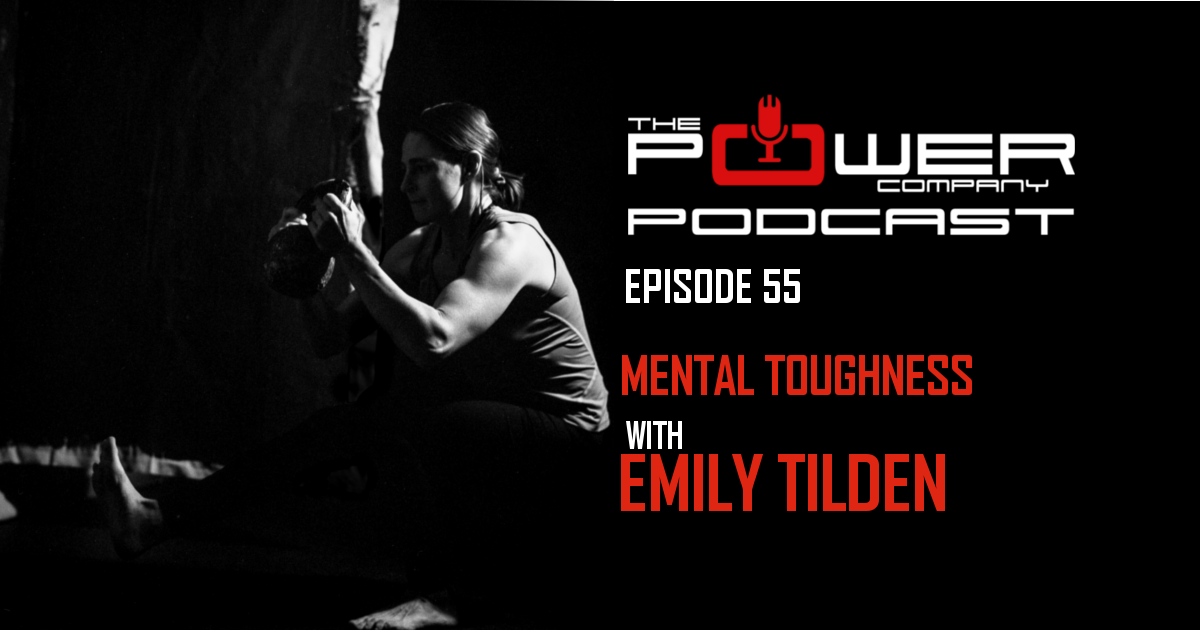
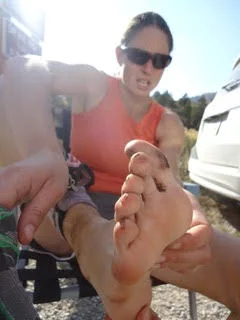
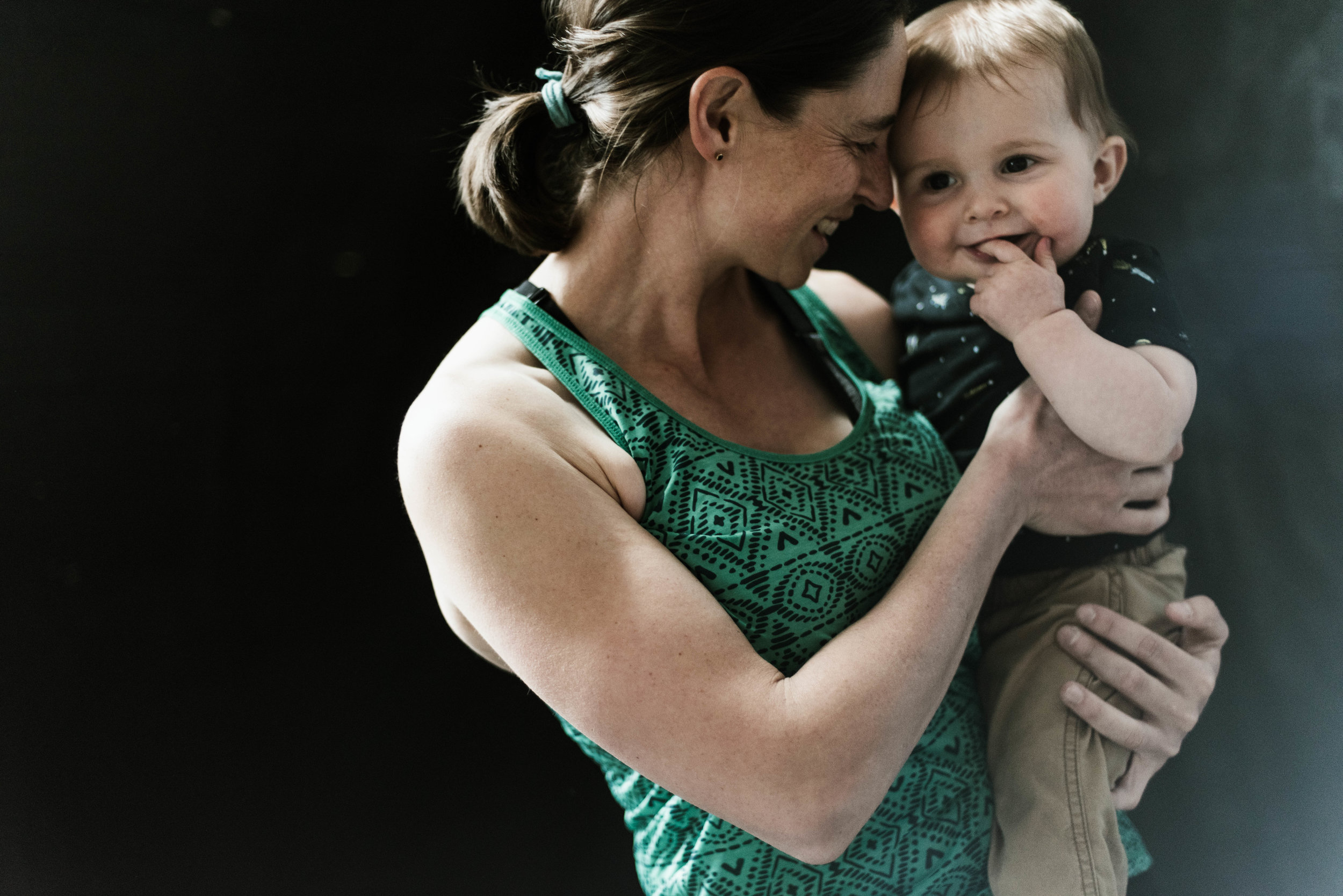












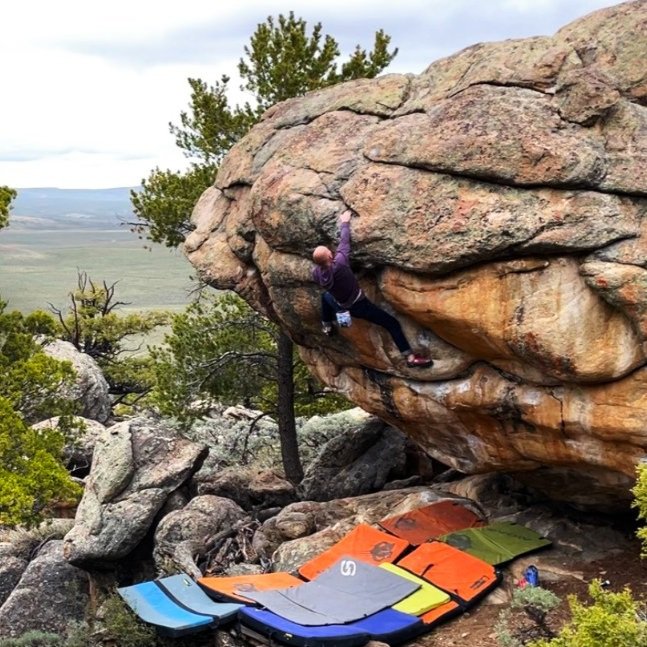

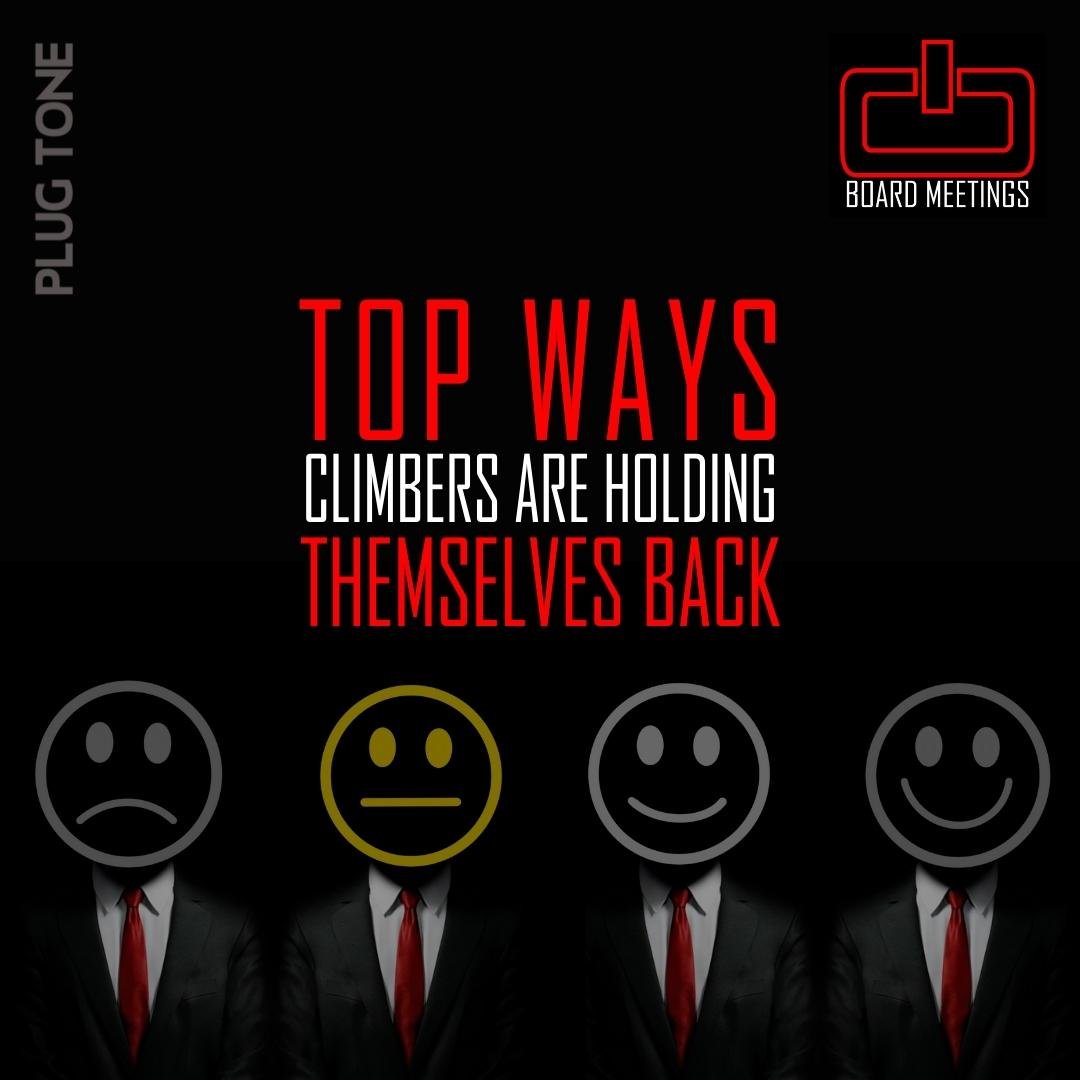

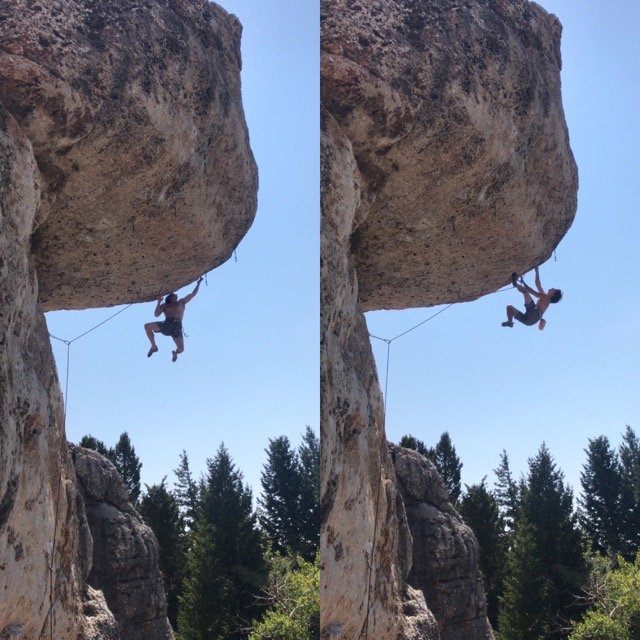


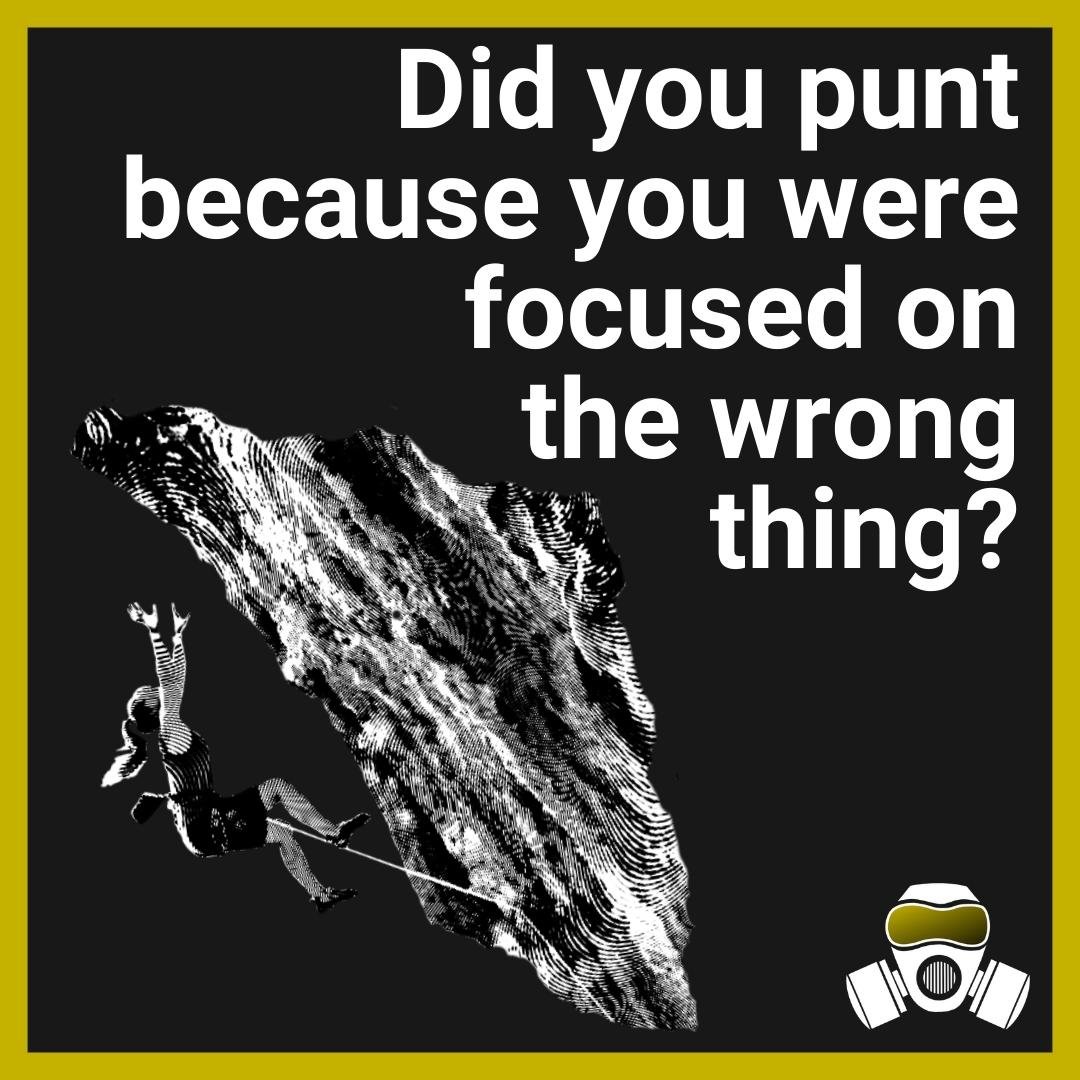
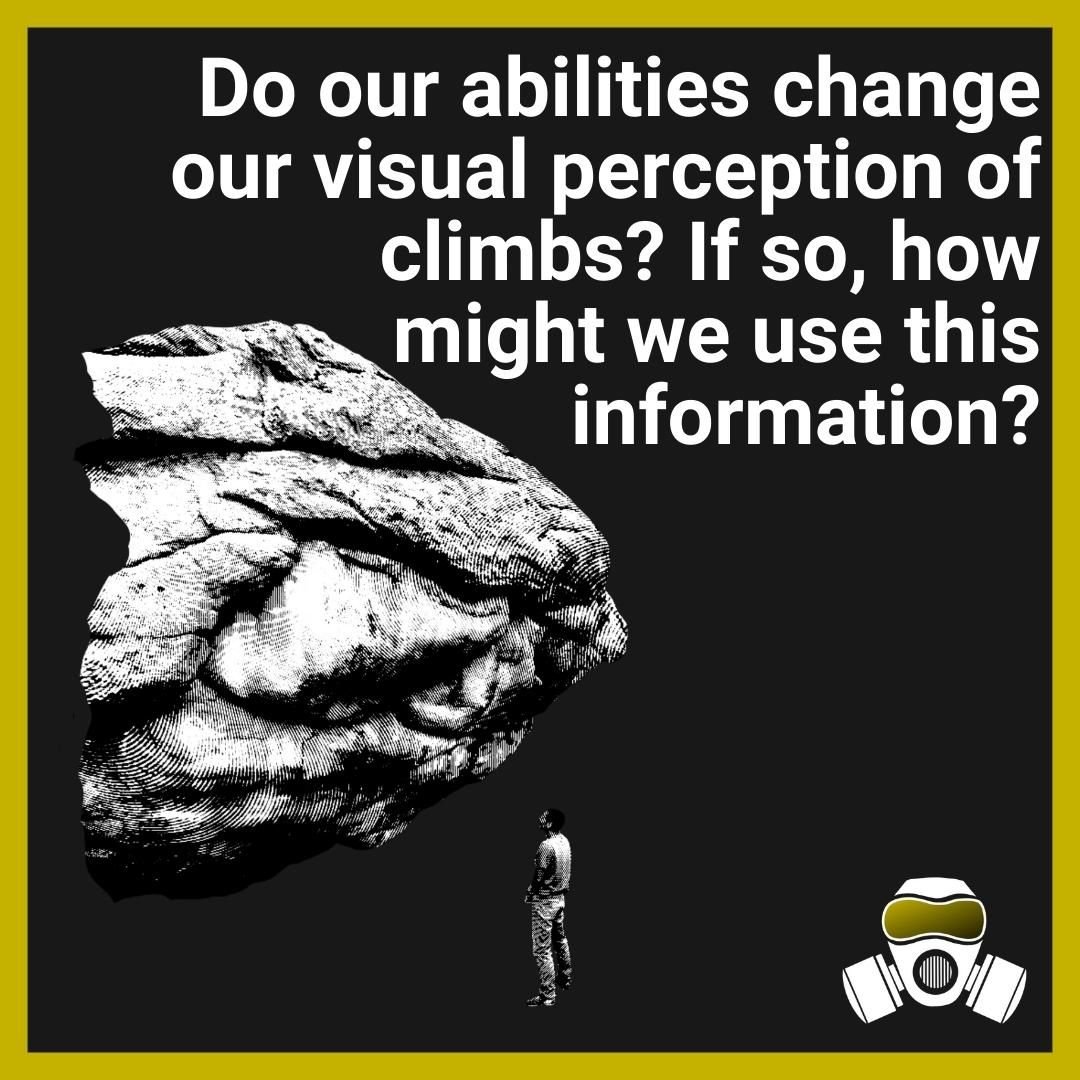



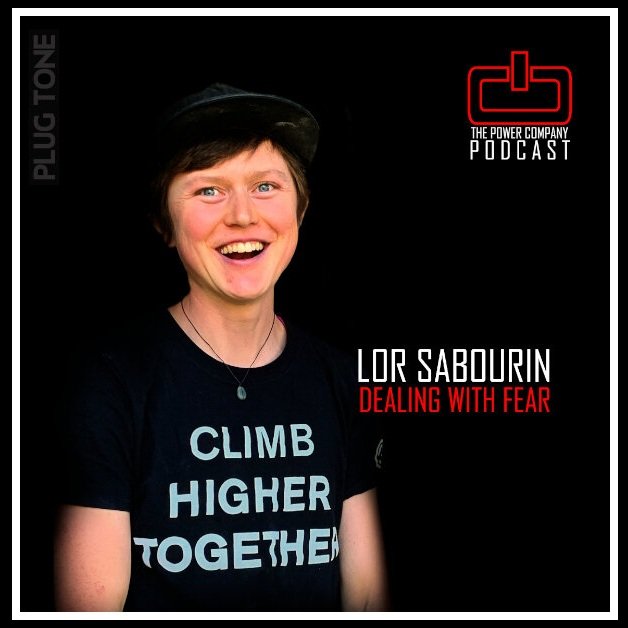








How do you know which is right for your situation?